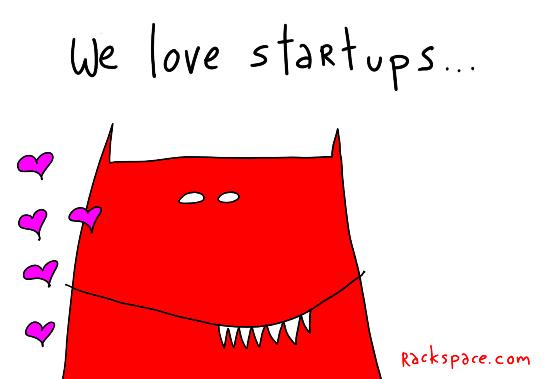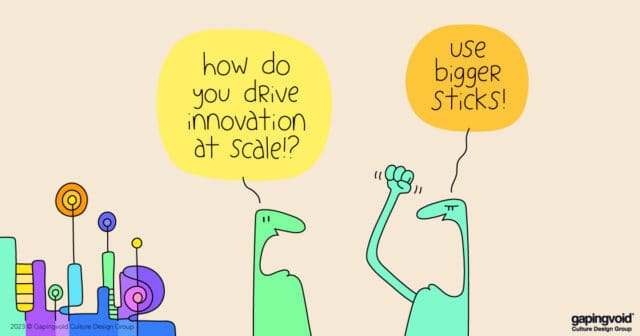
[One of my favorite recent “Social Objects”: a cartoon I did for Rackspace.]
The Social Object, in a nutshell, is the reason two people are talking to each other, as opposed to talking to somebody else. Human beings are social animals. We like to socialize. But if think about it, there needs to be a reason for it to happen in the first place. That reason, that “node” in the social network, is what we call the Social Object.
For as long as I’ve been involved with the Internet, I’ve seen the SAME OLD DISCONNECT appear again and again AND AGAIN i.e. the disconnect between how the Internet ACTUALLY works and how the social media marketing dorks like to PRETEND how it works.
Case in point: From Steve Jones’ blog:
Today I received an e-mail that said “Like us on Facebook and win”. Later in the day I walked into a store and on the door was a sign that said “Like us on Facebook”.
That’s like Billy Joel asking me to buy his album. It is like walking into a party and having someone say “Be my friend and I’ll buy you a drink”. In a word, it is pathetic.
Damn right it’s pathetic.
Note to Social Media Marketing Dorks: The hard currency of the Internet is not Facebook “Likes” or Twitter “Retweets”, as flavor-of-the-month as they might be. By themselves, they’re worthless.
The hard currency of the Internet is “Social Objects”.
i.e. Social Objects for people to SHARE MEANINGFULLY with other people.
You’re either creating them or you’re not. And if you’re not, you will fail, end of story.



